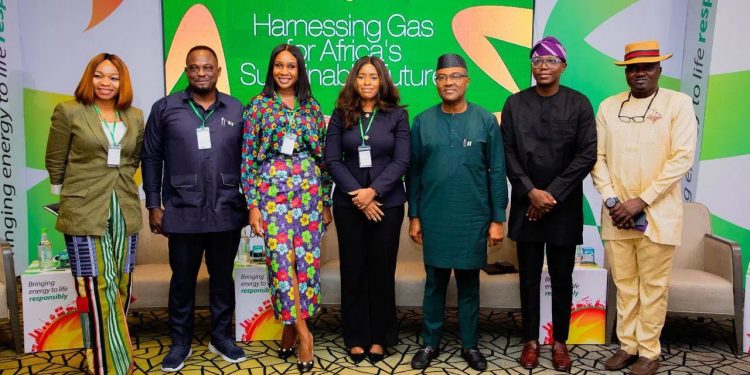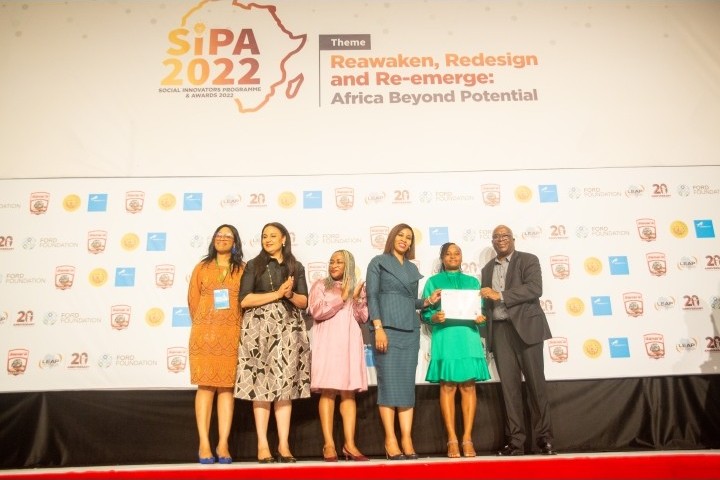Energy stakeholders have reaffirmed the critical role of natural gas in driving Africa’s industrial transformation and bridging the continent’s enduring energy poverty. This was the major highlight from Asharami Square 2.0, a thought leadership forum hosted by Sahara Group in Lagos on July 11, 2025.
At the forum, energy experts and senior government officials agreed that natural gas holds the key to powering industrial growth and delivering energy access across Africa. Despite the continent holding over 7 percent of global gas reserves, it consumes less than 5 percent—an imbalance that experts say can only be corrected through urgent investments, reforms in financing, and policy stability.
The forum underscored the need for $100 billion annually to expand Africa’s energy infrastructure. It also spotlighted the media’s role in shaping public understanding of energy transition and mobilising support for gas-led development strategies.
Speaking on behalf of the Minister of State for Petroleum Resources (Gas), the Senior Technical Adviser, Mr. Abel Nsa, said most of Africa’s gas remains stranded due to a lack of pipeline networks, virtual delivery systems, and viable financing models. He warned that gas flaring continues to erode economic value and reduce power generation potential. He reaffirmed Nigeria’s commitment under the ‘Decade of Gas’ initiative to scale domestic use through major pipeline investments and nationwide clean cooking programmes.
Representing keynote speaker Dr. Justice Derefaka, Mr. Frank Mmamelu of NNPC’s Upstream Investment Management Services noted that gas development can reduce poverty, boost agriculture, improve household energy access, and tackle gender inequality. He stressed the need to expand capacity across the gas value chain while shifting away from the export of unrefined resources.
Director of Governance and Sustainability at Sahara Group, Ejiro Gray, reinforced the argument that gas plays a critical role in balancing energy equity with sustainable development, particularly in areas that still lack access to reliable electricity and clean cooking solutions.
A panel session featuring key industry voices further explored the complex dynamics shaping Africa’s gas sector. Discussions covered financing barriers, investor risk, regulatory gaps, and public-private coordination. Abel Nsa noted that while policy objectives are clear, projects remain unattractive to investors due to the long development cycle of gas infrastructure. He called for financing frameworks that reduce uncertainty and make projects more bankable.
Infrastructure finance expert Mobolaji Sunmoni recommended the use of concessionary and public capital as early-stage de-risking tools. He said such blended finance models could pave the way for private investment and suggested local pension funds and sovereign-backed bonds as viable funding sources for modular gas infrastructure.
Panelists Ijeoma Isichei and Mariah Lucciano-Gabriel stressed that clear and consistent regulatory frameworks are essential for attracting long-term capital. Power sector executive Olurotimi Famoroti emphasised the importance of aligning gas infrastructure with industrial or power demand to avoid stranded assets.
Energy journalist and researcher Dr. Adeola Yusuf urged stronger media involvement in telling inclusive and human-centred stories about energy. He called on government agencies to improve public access to energy data and highlighted the underrepresentation of women in energy discourse. Citing NEITI data, he warned that Nigeria could lose over $4.5 billion to unchecked gas flaring over the next decade.
The forum ended with a unified call for collaboration among government institutions, private capital, local financiers, and media practitioners to unlock the continent’s gas potential and position natural gas as a tool for inclusive economic transformation.










